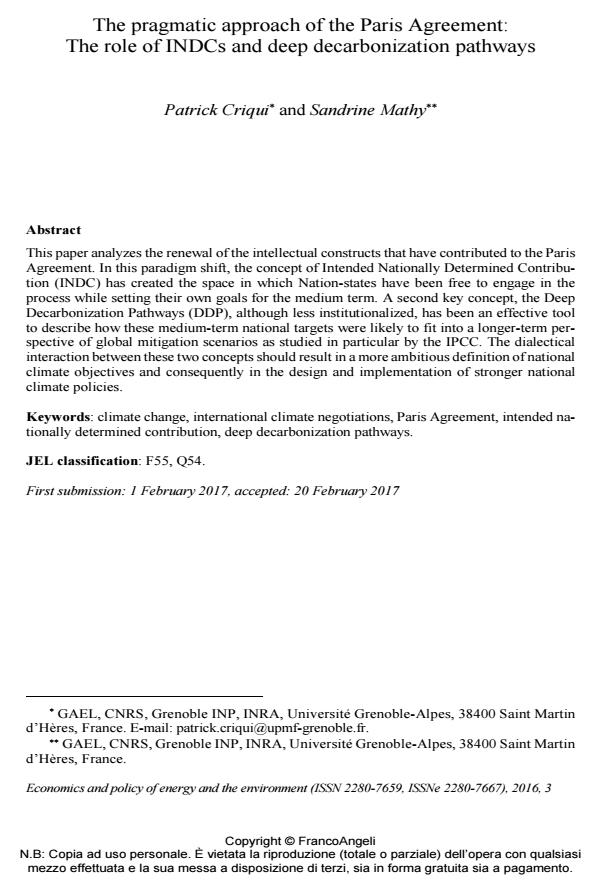The pragmatic approach of the Paris Agreement: The role of INDCs and deep decarbonization pathways
Journal title ECONOMICS AND POLICY OF ENERGY AND THE ENVIRONMENT
Author/s Patrick Criqui, Sandrine Mathy
Publishing Year 2017 Issue 2016/3
Language English Pages 9 P. 79-87 File size 167 KB
DOI 10.3280/EFE2016-003007
DOI is like a bar code for intellectual property: to have more infomation
click here
Below, you can see the article first page
If you want to buy this article in PDF format, you can do it, following the instructions to buy download credits

FrancoAngeli is member of Publishers International Linking Association, Inc (PILA), a not-for-profit association which run the CrossRef service enabling links to and from online scholarly content.
This paper analyzes the renewal of the intellectual constructs that have contributed to the Paris Agreement. In this paradigm shift, the concept of Intended Nationally Determined Contribution (INDC) has created the space in which Nation-states have been free to engage in the process while setting their own goals for the medium term. A second key concept, the Deep Decarbonization Pathways (DDP), although less institutionalized, has been an effective tool to describe how these medium-term national targets were likely to fit into a longer-term perspective of global mitigation scenarios as studied in particular by the IPCC. The dialectical interaction between these two concepts should result in a more ambitious definition of national climate objectives and consequently in the design and implementation of stronger national climate policies.
Keywords: Climate change, international climate negotiations, Paris Agreement, intended nationally determined contribution, deep decarbonization pathways.
Jel codes: F55, Q54.
Patrick Criqui, Sandrine Mathy, The pragmatic approach of the Paris Agreement: The role of INDCs and deep decarbonization pathways in "ECONOMICS AND POLICY OF ENERGY AND THE ENVIRONMENT" 3/2016, pp 79-87, DOI: 10.3280/EFE2016-003007